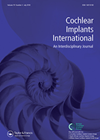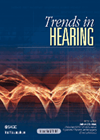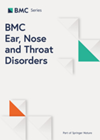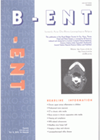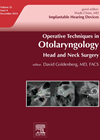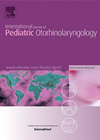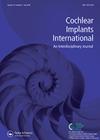
Journal Reviews
How do the rejected candidates for cochlear implantation feel?
This interesting study from the UK explored, using personal interviews, how rejected candidates for cochlear implantation feel and deal with the decision not to implant. The authors assessed 10 adult cochlear implant candidates who had undergone the evaluation process were...
Does head trauma as aetiology of deafness affect the outcomes of cochlear implantation?
Head trauma associated with temporal bone fractures is a well known aetiological factor for deafness. The literature assessing the outcomes of cochlear implantation in such cases is rather limited. In this paper, the authors compared the performance of implantees with...
Hearing loss in the young and self-esteem
How can those involved in the care of children with hearing loss identify those at risk of low self-esteem? This study provides some guidance. Overall differences from hearing peers in terms of communication skills, physical appearance and social maturity place...
Review: Cochlear Implantation in SSD?
Contra lateral routing of signals (CROS) using hearing aids and bone conduction devices has been the conventionally accepted modality for the treatment of single sided hearing impairment. The CROS hearing aid has been found to improve speech understanding in noise,...
Cochlear implantation in Ménière’s disease
This was a Belgian retrospective study of seven patients with Ménière’s disease who underwent cochlear implantation. All patients had bilateral severe to profound hearing loss and all met AAO-HNS criteria for Ménière’s disease. Follow-up for patients ranged from six months...
Cochlear implantation techniques
This issue concentrates on the advancement in techniques within the field of implant otology starting with cochlear implantation. Here it is sub-divided into indications, candidacy (including full pre-operative testing and investigations), surgical technique and outcomes for both adults and children....
Cochlear implants with an absent or hypoplastic cochlear nerve?
The cornerstone of successful cochlear implantation has been the presence of a population of cochlear nerve endings which are able to mount a neural response to electrical stimulation. The authors of this paper present their experience of five children with...
How can we assess children with complex needs?
In the early days of cochlear implantation, children with additional disorders were being excluded as poor candidates whereas today a large number of children with complex needs are being referred for cochlear implant assessment. However, the related problems include difficulties...

